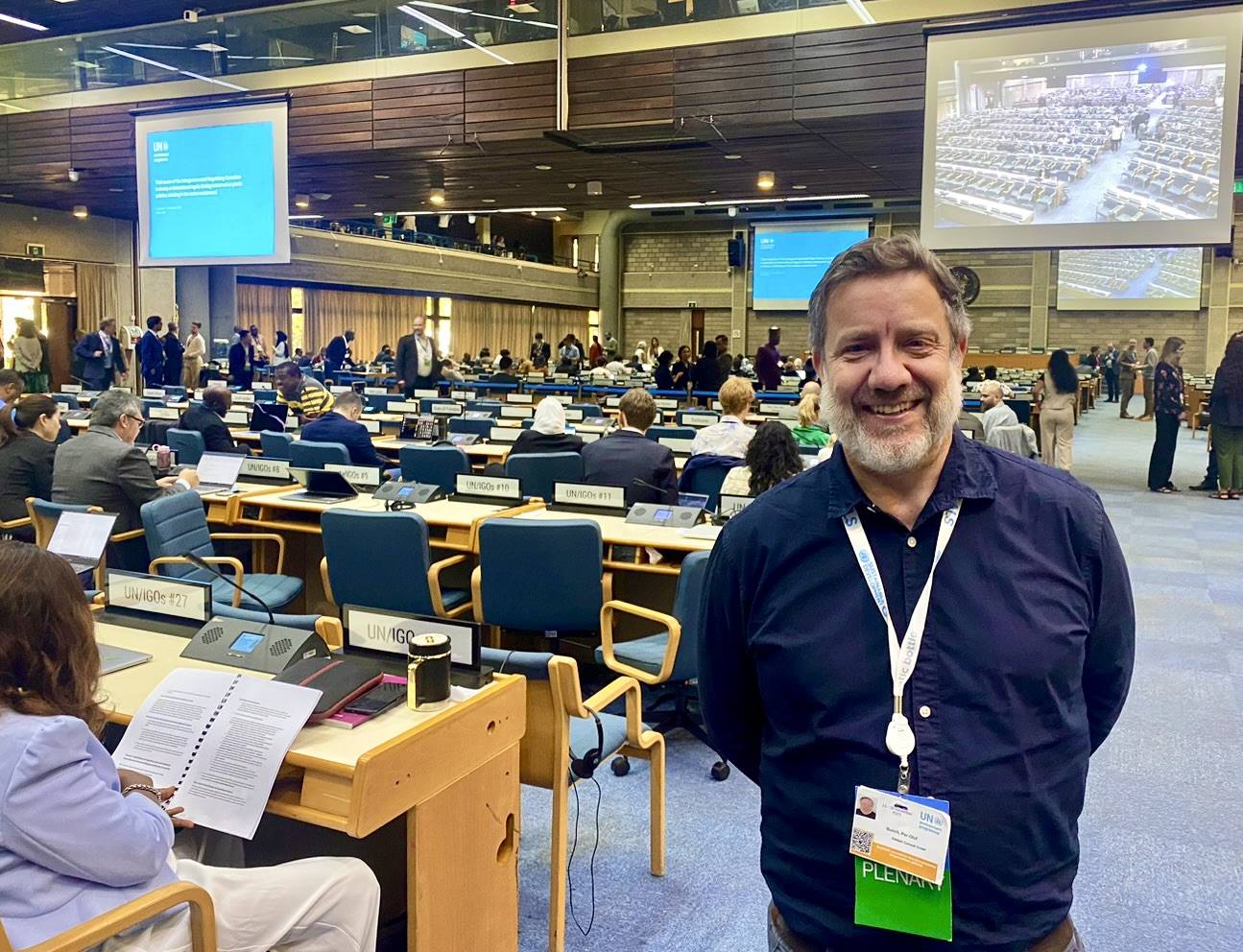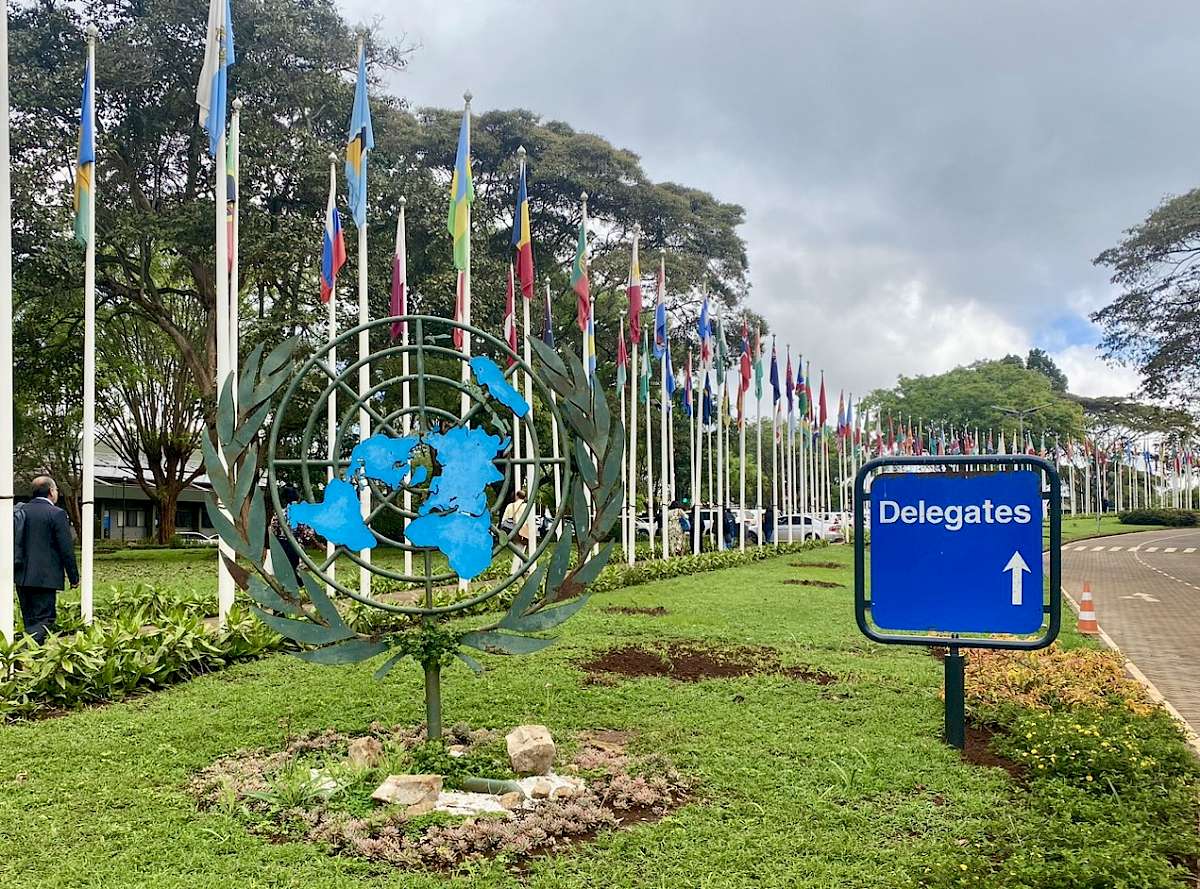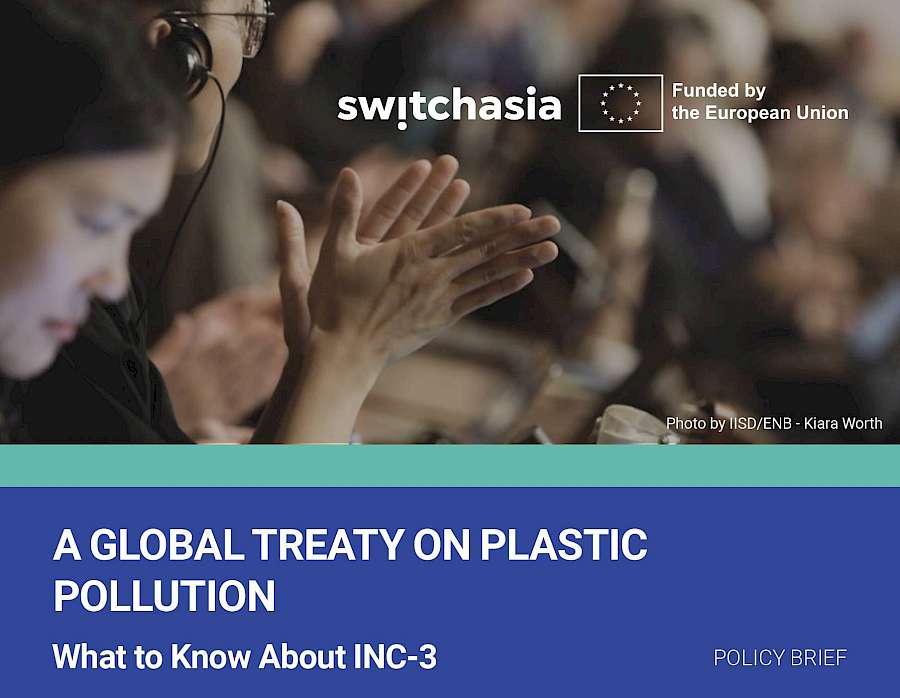
 Current global plastic production and consumption patterns, along with their growth trajectory, are unsustainable. A systemic shift to circularity is required to reduce environmental and human health impacts. In 2022, more than 190 states have jointly committed themselves to developing a binding agreement on plastic pollution, with the goal of concluding negotiations by the end of 2024. An Intergovernmental Negotiating Committee (INC) has been tasked with negotiating this. Five distinct rounds of negotiation are foreseen, of which the third one is ongoing in Nairobi. In this context, the SWITCH-Asia PSC has conducted an interview with Per-Olof Busch, an Expert on plastics for the SWITCH-Asia Policy Support Component, who is on location in Nairobi.
Current global plastic production and consumption patterns, along with their growth trajectory, are unsustainable. A systemic shift to circularity is required to reduce environmental and human health impacts. In 2022, more than 190 states have jointly committed themselves to developing a binding agreement on plastic pollution, with the goal of concluding negotiations by the end of 2024. An Intergovernmental Negotiating Committee (INC) has been tasked with negotiating this. Five distinct rounds of negotiation are foreseen, of which the third one is ongoing in Nairobi. In this context, the SWITCH-Asia PSC has conducted an interview with Per-Olof Busch, an Expert on plastics for the SWITCH-Asia Policy Support Component, who is on location in Nairobi.
What is most exciting about participating in a negotiation event like this?
It's hard to pick the most exciting thing, as so many aspects here are incredibly thrilling. What I really enjoy is listening to (and watching) all the different people who come from various countries and cultures, some wearing their traditional dresses. They express their often very different interests with great vigor but usually also with great respect for opposing or even conflicting interests. In short, it is exciting to see such a great divergence of culture and interests accompanied by an equally great respect for each other. And of course, it is incredibly exciting to be part of the global effort to combat plastic pollution, to provide input and advice whenever needed, and to promote this cause to the best extent possible.
What are moments that are challenging for you?
There are many different challenging moments. I'll start with the most obvious and frequent one. It is always difficult to find a place in the negotiation room with simultaneous translation. For example, if delegates speak in Arabic or Chinese, which are two of the five official languages during such negotiations, the others being English, Spanish, and French.
From a policy perspective, the most challenging moment is listening to statements by states that have a clear national economic interest in preventing any or most measures to reduce plastic pollution. And, this is why it is so challenging when they do so; some often simply ignore or even deny the many harmful environmental and health effects of plastic pollution. They typically disguise this national economic interest behind some more or less shallow arguments of the legality of measures, national sovereignty, and lacking scientific evidence. From a personal perspective, it is extremely difficult to digest all the input and get some rest because negotiations run all day from 8 AM until late at night. Without taking notes, it would be impossible to remember who said what, about which option, when, and how. Moreover, during the breaks, there are important side events with even more input or networking activities.
What do you expect from this week’s negotiation?
This is very difficult to say. My hope is that states will agree on a first draft text that will then be further negotiated in Canada in April 2024. Or at least, that they give the Chair who is leading the negotiations the mandate to develop such a first draft text based on all the submissions and requests for changes here in Nairobi.
If you could change one thing about this process, what would it be?
Streamline state submissions. In the beginning, states usually give general statements. Then, if discussions on individual items of the treaty text start, they give more specific statements on the individual items. These statements are important but also consume a lot of time. In particular, when it comes to statements on specific items in the treaty, I see opportunities to streamline and focus, thereby accelerating the whole process and creating more time for substantive discussions. Usually, each state prefers one option under a specific item, rejects all options, or proposes to add a third option or to change text in the description of the existing option. This whole discussion could be streamlined through a survey among states in which they first indicate what they want: a) support one of the two options and which one, b) propose a third one, and/or c) suggest new text for existing options. The newly suggested text for any option could be uploaded on an access-restricted website before the session so that all delegations can read it. The negotiations could then draw on this preparation. In general, I think that one should think about how digital tools might help facilitate and accelerate the negotiation process – even if many discussions are good to follow and engage with in person.
Learn about EU SWITCH-Asia Plastics Governance Engagement
Download Policy Brief



